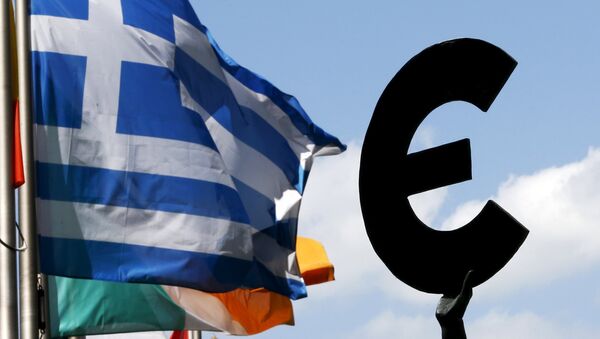Jean-Claude Juncker, who has been the president of the European Commission since 2014, has accused Greece of faking information about its economic performance before joining the European currency union. The outgoing EU head admitted in his farewell interview with the German outlet Bild that the EU had made mistakes in the past, but could learn from them.
“The currency union should be more reliable than a marriage, otherwise no one would believe in it. That is why before accepting a country into the Eurozone, one should check everything more thoroughly than was being done before. The truth is that Greece became a Eurozone member in 2001 after faking its statistics”, the EU official told the outlet.
He admitted that he has blamed himself and recalled that when he was Luxembourg’s finance minister, he opposed letting European statistics services check the data from applicant states.
“We have changed it now, and Eurostat can verify everything in each EU state. Europe can learn from its mistakes”, Juncker concluded.
Greece joined the Eurozone in 2001 and its exit from the currency bloc was narrowly averted in 2015. A series of crises hit Greece in the aftermath of the global financial meltdown of 2007-08 and prompted turmoil in the Eurozone, bringing it to the brink of collapse.
Between 2010 and 2012, 52.9 billion euros in loans were disbursed to Greece by Eurozone members under the so-called Greek Loan Facility to help Athens cope with the recession. From 2012-2015, Greece also received 141.8 billion euros in loans from the European Financial Stability Facility. The Greek authorities were forced to carry out unpopular austerity reforms in exchange for the loans.
READ MORE: Merkel Offered to Remove Greece from the Eurozone — Ex-Greek Prime Minister
In 2010, the European Commission found out that Athens had understated the country’s 2009 budget deficit. While Greece stated that this indicator was 6% of GDP, it was, in fact, 12.7%.


